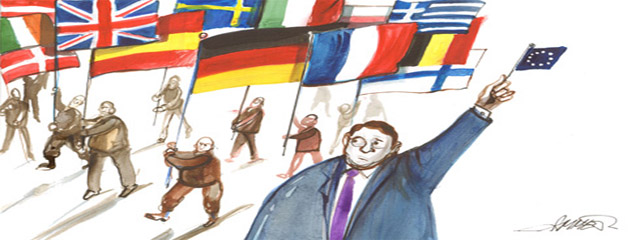The financial hurricane has left its mark in the European soul, an ugly scar that runs through the continent from north to south. The old and new stereotypes abound: the mendacity of the Greeks, the delirious exuberance of the Spaniards, the recklessness of the Irish, the self-serving leadership of the Germans.
Along with this dialogue of the deaf between creditors and debtors comes the discovery that all the countries using the euro share a common fate. Along the way, certainties have vanished and taboos have been broken, red lines stepped over and golden rules rewritten in a series of hasty decisions. That barrage of measures has staved off the worst, although it has left in its wake enduring stagnation, with unforeseeable consequences.
A half-decade of crisis, with the suspicion that there was never any master plan to combat it, the next stage is the ‘second Refoundation’ (after the period starting in the 1950s and taking in the first transition, which started to get going with the fall of the Wall, included the creation of the euro and culminated in the entrance of the Eastern bloc).
Read the whole article here.






Be the first to comment on "EU faces its ‘second Refoundation’"